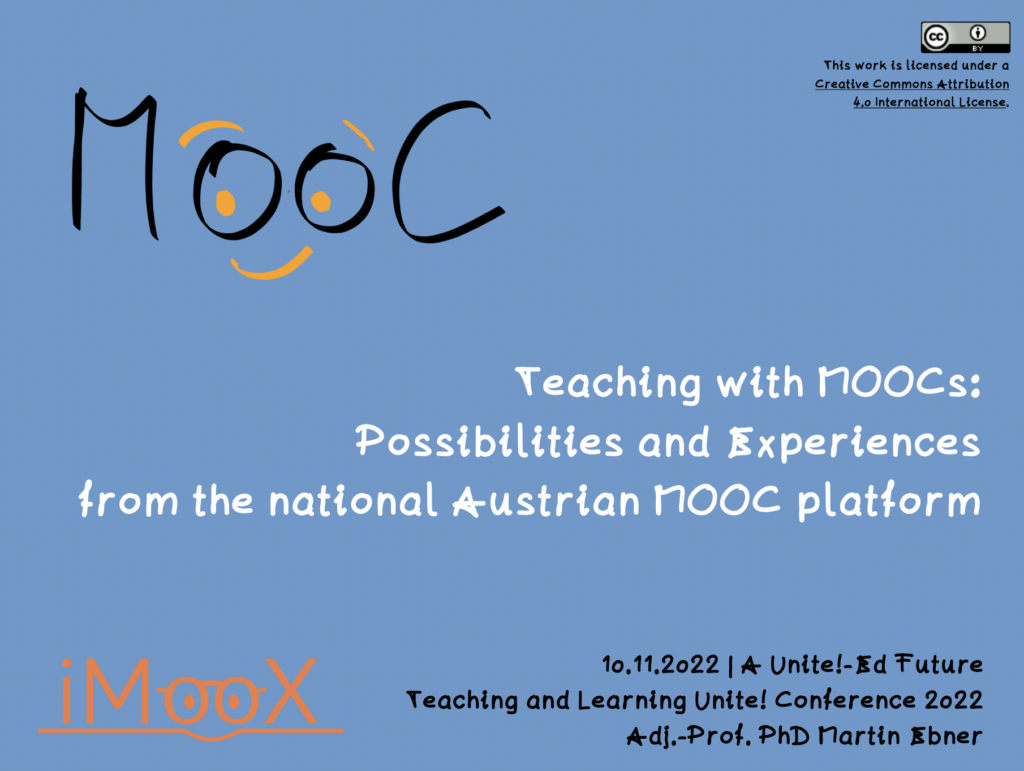Wir beschreiben im Beitrag zu „Der OER-Canvas für Lehrende: Werkstattbericht zum Einsatz von Learning Experience Design Zusammenfassung“ wie wir den OER-Canvas unter Berücksichtigung von LXD erstellt haben. Vorgestellt haben wir es dann auf der GMW 2022 Tagung.
Zusammenfassung:
Bezugnehmend auf eine Analyse der Rolle von offenen Bildungsressourcen (OER für „Open Educational Resources“) in den Leistungsvereinbarungen österreichischer öf- fentlicher Universitäten der Jahre 2019–2021 (Edelsbrunner, Ebner & Schön, 2021) werden in diesem Beitrag die Entwicklungen des vergangenen Jahres in Bezug zu OER und den Hochschulen in Österreich beschrieben. Zentral ist dabei die Analyse der neuen Leistungsvereinbarungen der 22 öffentlichen österreichischen Universitäten für die Periode 2022–2024 und der Nennung von OER-Aktivitäten. Dabei wird auf- gezeigt, dass nun alle öffentlichen Universitäten OER in den Leistungsvereinbarungen erwähnen, 16 der 22 Universitäten planen sogar weitreichende OER-Aktivitäten. Auch haben weitere Hochschulen OER-Strategien veröffentlicht.
[Artikel @ ResearchGate]
[Tagungsband]
Zitation: Edelsbrunner, S., Ebner, M., Lari, C., Schön, S. (2022) Der OER-Canvas für Lehrende. In: Digitale Lehre nachhaltig gestalten, Standl B. (ed.), S. 13-18, Waxmann Verlag. ISBN 978-3-8309-4633-5









